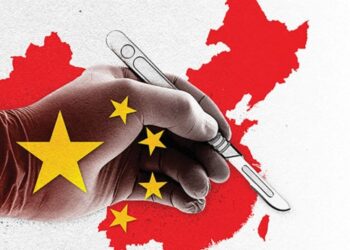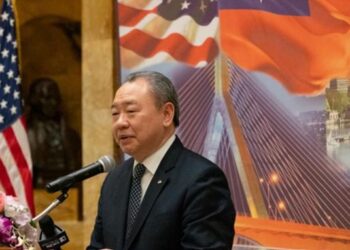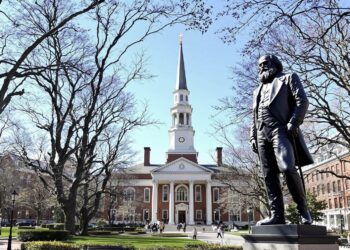In recent discussions, experts have raised alarms over the persistent and pervasive threat posed by Chinese infiltration in the United States. Ret. Col. Derek Harvey, a seasoned intelligence officer, and Ben Harnwell, a political analyst, highlighted the grave concerns regarding the Chinese Communist Party’s (CCP) efforts to infiltrate various American institutions, from universities to government bodies. Their commentary underscores a troubling reality: despite clear warnings, these threats have often been ignored or downplayed.
Harvey pointed out that Chinese infiltration is “the largest counterintelligence and domestic spying operation” faced by the Federal Bureau of Investigation (FBI), yet it remains under-resourced and, more concerningly, not prioritized.
“Too often these warnings and the indicators that they should be looking for are ignored or they just are quickly forgotten,” Harvey stated, reflecting a widespread complacency or negligence within the U.S. establishment.
This lack of prioritization is not just a theoretical issue; it has real-world consequences. For instance, Harvey recalled the case of U.S. Congressman Eric Swalwell, who served on the House Intelligence Committee while maintaining a relationship with a Chinese agent named Fang Fang. Similarly, Senator Dianne Feinstein employed a driver for two decades who was later revealed to be a Chinese spy. These incidents, Harvey emphasized, were not isolated but part of a broader pattern of Chinese espionage efforts that have been overlooked until it’s too late.
“The FBI is spending resources on following, persecuting, and surveying little old ladies who climb to the U.S. state just to pray,” Harnwell added, pointing out the stark contrast in resource allocation. “Meanwhile, spies who are seeking to advance the influence of the CCP in America often go undetected for years.” This misallocation of resources, according to Harvey, demonstrates a failure of priorities within the FBI and other agencies tasked with national security.
Harvey also discussed the tactics used by the CCP to gain influence in the U.S., describing them as multifaceted and deeply embedded. Chinese agents often cultivate relationships over many years, providing financial incentives, luxurious trips, and seemingly benign gifts like “salted Peking duck” delivered to American officials’ homes. “China doesn’t do this out of the goodness of their heart,” Harvey warned. “They do it because they want to gain some influence either now or down the road in a decade or two.”
Harvey sees the problem as not just the presence of these spies but the failure of U.S. institutions to take the threat seriously. Despite numerous FBI briefings to universities, corporations, banks, and local governments about the dangers of Chinese infiltration, these warnings are often ignored. “These people too often become witting or unwitting participants in China’s broader strategy,” Harvey said.
One particularly concerning aspect is how seemingly Chinese agents can leverage innocuous information. Harvey mentioned a case involving a New York State Labor Department employee whose access to certain information could be transferred to China for strategic gain. “They are very capable of leveraging even what might seem to be very innocuous information,” Harvey explained.
The experts argue that the U.S. doesn’t necessarily need new legislation or enhanced powers to combat this threat. What is needed, Harvey stressed, is a reevaluation of how existing resources are used and a shift in priorities to focus on the most pressing threats. “It’s a matter of will,” he said, urging for a more vigilant and proactive stance against Chinese infiltration.
The comments by Harvey and Harnwell serve as a stark reminder of the ongoing and underappreciated threat posed by Chinese espionage in the U.S. Without a significant change in how these issues are addressed, the U.S. risks allowing these infiltration efforts to continue unchecked, with potentially dire consequences for national security.
Watch the full segment with Derek Harvey for more:






Minnesota Gov.Tim Walz is a Chinese asset with over 30 trips to the country in the past three decades, including teaching there and forming a travel agency to take students there. One of those students has said he was an admirer of the communists and Mao’s ‘Little Red Book’ of quotations. Minnesota leads the country in the radicalization of the DFL party. His bio is becoming well known and should be hammered at over and over again. Should he become vice president the US will have a dedicated agent of the CCP at the heart of our government.
Hi Mark! Great points.